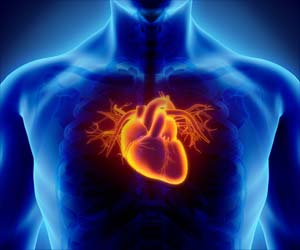A pulsing fibrous web is being tested by UK researchers that could be the answer for heart ailments.
A pulsing fibrous web is being tested by UK researchers that could be the answer for heart ailments.
UK researchers are testing how efficacious a pulsing fibrous web, which can be wrapped around the heart, may be in giving boost to ailing hearts.A team of researchers from the University of Leeds and University College London is presently testing the device on a mechanical model of the heart, which is connected to a computer simulation of the circulatory system.
So far, the results have shown that the web can help the heart to pump blood effectively and expend less energy.
"Recent research shows that assisting a diseased heart for a while can help it recover by taking off the load, like physiotherapy for the heart," New Scientist quoted David Keeling, a PhD student at the University of Leeds, as saying.
The device, which can be fitted tightly over the heart’s surface, is made from the same polyethylene material used to make artificial heart valves. It has three constricting belts woven through its fabric, which are powered by small electric motors.
The motors control the belts in a pulsing rhythm that draws in, and releases the elastic web. Force sensors can coordinate the motors with the heart's rhythm by sensing its movements, and thereby support the action of the ventricle, the lower part of the heart that does most of the work to push blood around the body.
Advertisement
"Our device will only cover the heart and doesn't come into contact with a patient's blood at all. That should reduce the need for drugs," he says.
Advertisement
The researchers are continuing their tests with the simulated heart to gauge how to give the device as long a working lifetime as possible. They are also working on shrinking the electric motors so that more bands can be built into the device.
They envision that the future device will be powered by batteries either implanted into the body, or that transmit power wirelessly through the skin.
"This is a completely different way of thinking about how to assist the heart without causing major trauma. If it works millions of people worldwide could have their quality of life improved," says Barbara Harpham, national director at charity Heart Research UK.
Source-ANI
KAV/K









